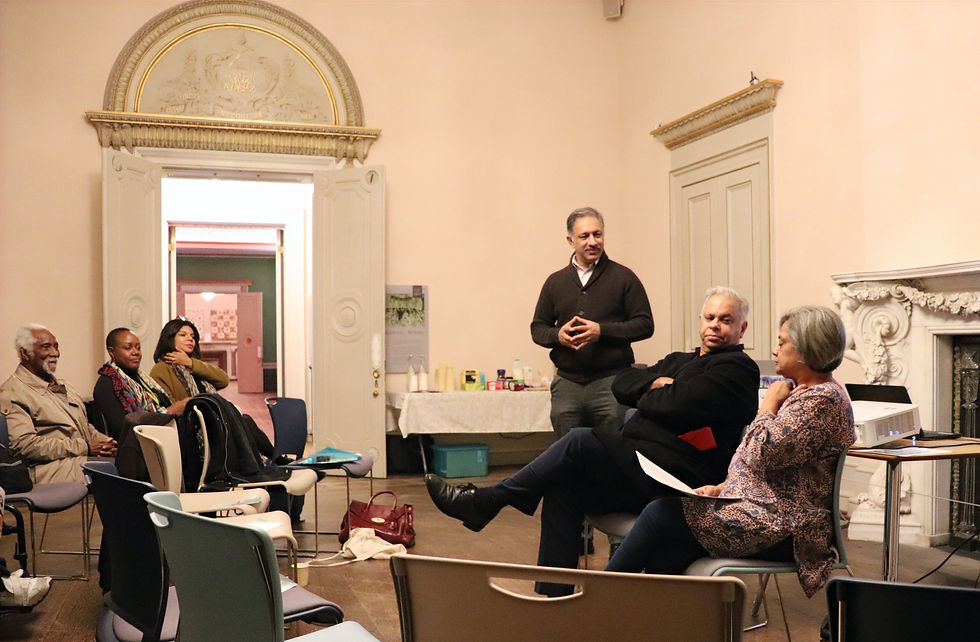Southall Rising Event: 06/11/2019
- msorya2
- Feb 17, 2020
- 3 min read
Updated: Feb 20, 2020
On display at this talk were artworks produced by school children who had worked in collaboration with professional artists. The speakers at the event included Suresh Grover (Southall Monitoring Group), Meena Patel (Southall Black Sisters) and a local Southall Businessman and resident Dilawar Chaudhury.

Suresh Grover talked about pivotal moments in Southall's history which led to the formation of a community that was both resilient and dynamic:
- Until 1962, there weren't many south Asian women emigrating to the UK, mostly South Asian men.
- Southall Residents Association would hold active demonstrations and would chant "send them back".
- The racist murder of a young teenager Gurdip Singh Chaggar and the murder of Blair Peach galvanized activism in the form of the Southall Youth Movement.
- The National Front wanted repatriation - one meeting at Southall Town Hall led to rioting, police cordoned Southall, 800 people were arrested.
Meena Patel discussed the ways in which racism and sexism intersect. She described the case of Mrs Dhillon and her three daughters who were burnt to death and the irony of a community fighting against fascism but the silence when it came to issues affecting women. Patel also discussed more recent immigration policies in the UK: for example the recent 'go home' vans. New policies have made us all immigration agents (landlords, nurses, police etc). This has the impact of dividing us in our own communities, especially for people fearful of being deported if they ever sought help from social services or the police. Patel expressed concern over the future - esp. in relation to the perceived rise of the far right. What forms of resistance are required now in order to counteract this?
Dilawar Chaudhury described the police as being a 'common enemy' in the 1970s. He talked about how Asians were a unified force - Hindus, Sikhs, Muslims were not seen as separate groups: they all worked and played together. Southall had a ripple effect through the whole country: "unity rippled out of Southall".
Some of the questions and responses at the end of the talk were very insightful and inspiring. Grover talked about how we survive and thrive through progressive movements such as art, music, photography etc. Discourse is needed that's inclusive not atomised on class/ race or gender. This left me with lots to think about in terms of the project we are about the embark on in Southall, in particular the significance of solidarity being understood through the lens of our own lived experience. It was the final comment/ question from an audience member that resonated with me most, he exclaimed "these diasporas have civilised this country" before asserting the need for a more expanded representation of Southall's history: "Blair Peach is not Southall history. He is an incident in its history which is emotive, but he is not the whole history." Much of what has been written and documented of the first generation experience in Southall has tended to focus on the struggles of assimilation and the fight against fascism - particularly the riots of 1979. Having grown up in Southall, I know there is so much more that deserves an equal level of attention. At the moment, the sharing of lived experience through the arts feels to be a good place to begin.
M. Sorya (16.02.20)

Images from Talk, Gunnersbury Park Museum, 6th Nov 2019:

(L-R) Janpal Basran, Suresh Grover and Meena Patel




Artwork: collaboration between school children Southall and Professional Artists (2019):







Comments